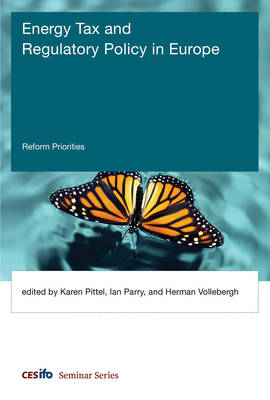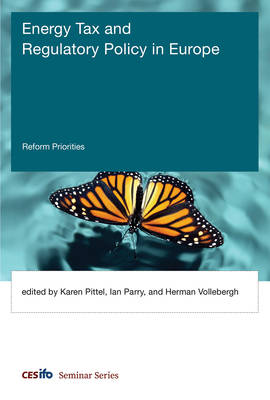
- Afhalen na 1 uur in een winkel met voorraad
- Gratis thuislevering in België vanaf € 30
- Ruim aanbod met 7 miljoen producten
- Afhalen na 1 uur in een winkel met voorraad
- Gratis thuislevering in België vanaf € 30
- Ruim aanbod met 7 miljoen producten
Omschrijving
The European Union (EU) faces critical challenges in energy policy making, the most pressing of which are how to achieve the deep greenhouse gas reductions promised at the December 2015 UN Conference of the Parties in Paris, and how this effort can be coordinated with already existing policies. Energy policy is primarily a member state responsibility, and policy makers need an overarching view of the main issues in energy policy and their interaction with environmental policies. This volume aims to fill this need, offering concise introductions to some of the major issues as well as practical suggestions for policy making.
The contributors discuss reforms to the EU Emissions Trading System (ETS), the world's largest carbon market; ways to improve the operation and integration of the EU's power grids, in terms of both supply and demand; changes to the EU's Energy Tax Directive, which sets tax floors for fuels outside the ETS; the coordination of climate policies with policies to promote renewables and energy efficiency; research into clean technology; challenges to shale gas development; and transportation policy and the need for action on such externalities as traffic congestion. Finally, contributors consider obstacles to reform, including its potential effects on vulnerable households and energy-intensive industries.
Contributors
Mikael Skou Andersen, Niels Anger, Bruno De Borger, Antoine Dechezleprêtre, Jos Delbeke, Ottmar Edenhofer, Christian Flachsland, Beatriz Gaitan, Polona Gregorin, Cameron Hepburn, Alan Krupnick, Andreas Löschel, Claudio Marcantonini, Felix Christian Matthes, Paul Nahmmacher, Ian Parry, Karen Pittel, David Popp, Stef Proost, Christina Roolfs, Bert Saveyn, Oliver Schenker, Stephen Smith, Alexander Teytelboym, Kurt Van Dender, Herman Vollebergh, Nils-Henrik M. von der Fehr, Zhongmin Wang, Georg Zachmann
Specificaties
Betrokkenen
- Uitgeverij:
Inhoud
- Aantal bladzijden:
- 408
- Taal:
- Engels
- Reeks:
Eigenschappen
- Productcode (EAN):
- 9780262036399
- Verschijningsdatum:
- 11/08/2017
- Uitvoering:
- Hardcover
- Formaat:
- Genaaid
- Afmetingen:
- 147 mm x 231 mm
- Gewicht:
- 680 g

Alleen bij Standaard Boekhandel
Beoordelingen
We publiceren alleen reviews die voldoen aan de voorwaarden voor reviews. Bekijk onze voorwaarden voor reviews.










